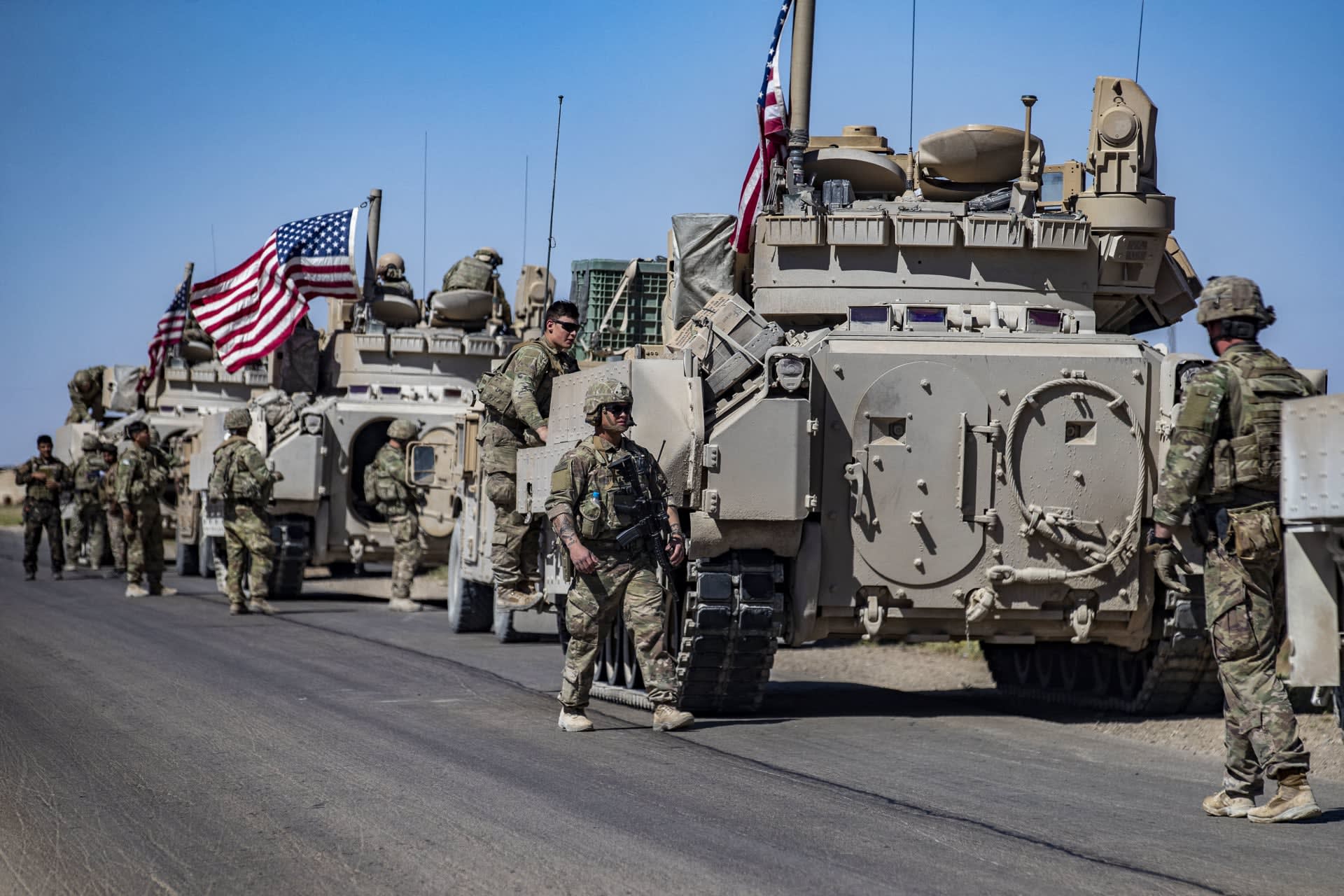The Pentagon denies the withdrawal of US forces from Syria.

The U.S. Department of Defense (Pentagon) has confirmed that recent military movements of American forces in Syria are part of a "routine redistribution," denying any connection to withdrawal from Syrian territories.
According to statements by an official spokesperson quoted by the Russian news agency "Novosti": "The United States periodically repositions its forces based on field variables and operational needs," adding that these actions "reflect the flexibility of its defense strategy and its ability to adapt to evolving threats."
Field reports contradict the official narrative
Conversely, sources close to the Syrian Democratic Forces (SDF) reported the beginning of the U.S. Army's evacuation of the "Koniko Field" base in eastern Deir ez-Zor, where two large convoys with over 200 military vehicles, including heavy equipment, were seen leaving the site in recent days.
Sources also noted the disappearance of the base's surveillance balloon for over a week, while the recent American convoy headed towards Erbil in the Kurdistan region of Iraq.
Possible 50% reduction in forces
U.S. sources revealed to Reuters that Washington is considering halving its troops in Syria to around a thousand soldiers, as part of a comprehensive review of its strategy in the region.
These developments coincide with a report by the Israeli newspaper "Yedioth Ahronoth" indicating that American officials have informed their Israeli counterparts of the United States' intention to carry out a gradual withdrawal in the next two months.
Israeli reactions and warnings of security vacuum
The Israeli security establishment has expressed concerns about the potential American withdrawal's repercussions, especially regarding enabling Turkey to strengthen its presence in sensitive areas like the "T4 Airport" and the city of Palmyra, which are strategically important for Israeli national security.
The Israeli Ministry of Defense warned that any American vacuum might tempt Ankara to expand its influence in northern and eastern Syria, particularly amidst its escalating regional roles following the Syrian civil war.
Turkish-Israeli tension despite diplomatic efforts
In a related context, technical meetings between Turkish and Israeli military representatives took place in the Azerbaijani capital, Baku, last week to discuss mechanisms to prevent clashes in Syria. However, these efforts suffered a setback after statements by Turkish President Recep Tayyip Erdogan describing Israel as a "terrorist state," accusing it of attempting to "sabotage the Syrian revolution," reigniting tensions between the two sides.